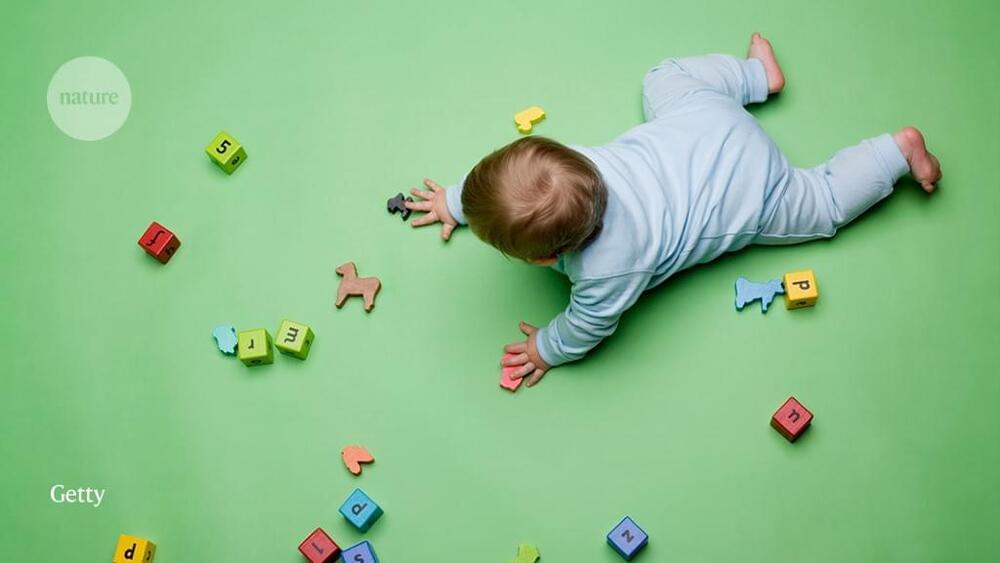Inspired by research into how infants learn, computer scientists have created a program that can pick up simple physical rules about the behaviour of objects — and express surprise when they seem to violate those rules. The results were published on 11 July in Nature Human Behaviour1.
Developmental psychologists test how babies understand the motion of objects by tracking their gaze. When shown a video of, for example, a ball that suddenly disappears, the children express surprise, which researchers quantify by measuring how long the infants stare in a particular direction.
Luis Piloto, a computer scientist at Google-owned company DeepMind in London, and his collaborators wanted to develop a similar test for artificial intelligence (AI). The team trained a neural network — a software system that learns by spotting patterns in large amounts of data — with animated videos of simple objects such as cubes and balls.
